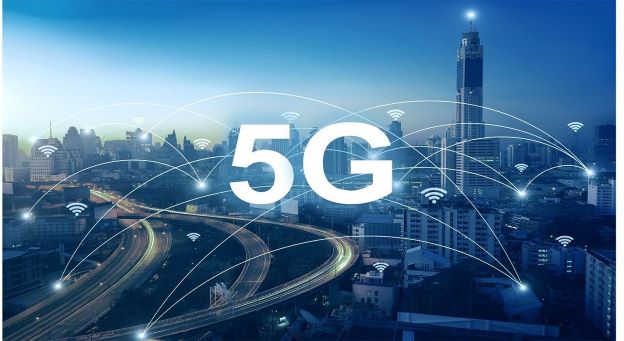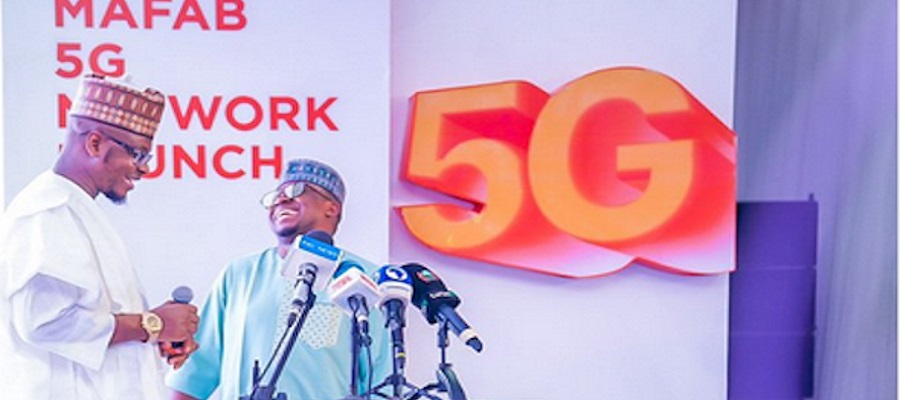Telecom
GSMA says 30 Countries to Launch 5G Services in 2023

New figures from GSMA Intelligence show 5G connections are expected to double over the next two years, expedited by technological innovations and new 5G network deployments in more than 30 countries in 2023 alone. Of the new networks to be deployed in 2023, it is expected that 15 will be 5G Standalone networks.

The forecasts from GSMA Intelligence, announced during MWC Barcelona 2023, point to a significant period of growth in terms of mobile subscribers and enterprise adoption.
Consumer connections surpassed one billion at the end of 2022 and will increase to around 1.5 billion this year – before reaching two billion by the end 2025. This momentum confirms 5G as the fastest generational roll-out, when compared to 3G and 4G.
As of January 2023, there were 229 commercial 5G networks globally and over 700 5G smartphone models available to users.
Opening up in emerging markets
Growth will also come from key markets within APAC and LATAM, such as Brazil and India, which have recently launched 5G networks. India will be especially significant, with the expansion of services from Airtel and Jio in 2023 expected to be pivotal to the region’s ongoing adoption. GSMA Intelligence predicts there will be four 5G networks in India by the end of 2025, accounting for 145 million additional users.
Many of the new 5G markets scheduled to launch networks in 2023 are in developing regions across Africa – including Ethiopia and Ghana – and Asia.
Today, 5G adoption in the sub-Saharan region sits below 1% but will reach over 4% by 2025 and 16% in 2030, largely thanks to a concerted effort from industry and government organisations to provide connectivity to citizens.
“Until now, 5G adoption has been driven by relatively mature markets and consumer use cases like enhanced mobile broadband, but that’s changing. We’re now entering a second wave for 5G that will see the technology engage a diverse set of new markets and audiences,” said Peter Jarich, Head of GSMA Intelligence.
“The extension to new use cases and markets will challenge the mobile ecosystem to prove that 5G truly is flexible enough to meet these diverse demands in a way that’s both inclusive and innovative.”
The Rise of 5G FWA
As of January 2023, more than 90 fixed broadband service providers (the vast majority of which are mobile operators) had launched commercial 5G-based fixed wireless services across over 48 countries. This means around 40% of 5G commercial mobile launches worldwide currently include an FWA offering.
In the US, T-Mobile added over half a million 5G FWA customers in Q4 2021 and Q1 2022 combined. By 2025, it expects to have eight million FWA subscribers, while Verizon is targeting five million FWA subscribers for the same period. And, with operators such as Jio announcing ambitions to connect as many as 100 million homes across India to its 5G FWA network, the number of FWA users looks likely to grow substantially over the next few years.
While the majority of current 5G FWA deployments focus on the 3.5–3.8 GHz bands, several operators around the world are already using 5G mmWave spectrum as a capacity and performance booster to complement coverage provided by lower bands.
Only 7% of 5G launches have been in 5G mmWave spectrum so far but this looks set to change given 27% of spectrum allocations and 35% of trials are already using 5G mmWave bands.
Furthermore, in 2023 alone, the industry will see ten more countries assigned 5G mmWave spectrum for use – a significant increase from the 22 countries who have been assigned it to date.
Spain received the first European 5G mmWave spectrum allocation this year, resulting in Telefónica, Ericsson and Qualcomm launching its first commercial 5G mmWave network at MWC Barcelona 2023.
Enterprise IoT Driving Growth
The figures from GSMA Intelligence also suggest that, for operators, the enterprise market will be the main driver of 5G revenue growth over the next decade.
Revenues from business customers already represent around 30% of total revenues on average for major operators, with further potential as enterprise digitisation scales.
Edge computing and IoT technology presents further opportunities for 5G, with 12% of operators having already launched private wireless solutions – a figure that will grow with a wider range of expected IoT deployments in 2023.
Another major development for the enterprise will be the commercial availability of 5G Advanced in 2025. Focusing on uplink technology, 5G Advanced will improve speed, coverage, mobility and power efficiency – and support a new wave of business opportunities.
GSMA’s Network Transformation survey showed half of operators expect to support 5G Advanced commercial networks within two years of its launch. While this is likely optimistic, it presents the ecosystem with a clear opportunity to execute on.
Telecom
Mafab Communications Has Launched 5G Services- Findings

Contrary to media some media reports yesterday, Mafab Communications, one of the companies granted Fifth Generation (5G) licences by Nigerian Communications Commission (NCC) has actually rolled out its 5G network services in Abuja since 2023.

According to Nigeria CommunicationsWeek findings, the rollout came almost a year since the telco paid $273.6 million for spectrum in the 3.5GHz band as part of a government auction.
Mafab Communications, has, not however kept to its promise to to strengthen its commercial operations by March 2025 as its services has remained skeletal since the media launch.
It said that it will roll out its high-speed 5G services through 102 operational sites strategically located in Kano and Abuja but that did not happen as at close of March.
An insider in the company, however assured that starting this month, subscribers with Mafab’s 5G routers will be able to enjoy ultra-fast connectivity on its expanding network.
This move aims to capture a wider share of Nigeria’s growing demand for 5G services.
Dr Musbahu Bashir, founder and chairman, Mafab Communications, said during the rollout launch that the telco will offer both voice and data services nationwide.
Additionally, Nigerian cities like Lagos, Port Harcourt, Enugu, Kano, and Kaduna have been listed for the deployment of 5G services while those not on the list will have services deployed at a later stage.
“The rollout of Mafab Communications 5G network is the beginning of immense opportunities for the country as it represents Nigeria’s capabilities and infinite possibilities,” he said.
“The prospect of increased job opportunities as a consequence of the value-chain benefits the technology will generate and offer is the dream we have all gathered here to launch today,” Bashir continued.
Telecom
Samsung Introduces Local Nigerian Languages to Galaxy Devices, Celebrating Cultural Diversity

Samsung Electronics has taken a bold step in enhancing user experience and inclusivity by introducing Hausa, Igbo, and Yoruba as official language options on selected Samsung Galaxy devices.

L-R: Stephen Okwara, Head, Product Management, Mobile Experience, Samsung Electronics West Africa; Joy Tim-Ayoola, Group Head, Mobile Experience, Samsung Electronics West Africa; Tae Sun Lee, Samsung Electronics West Africa CEO; Oge Maduagwu, Head of Marketing Samsung Electronics West Africa, and Nathan Lee, Regional Business Lead, Mobile Experience, Samsung Electronics West Africa, at the launch of Nigeria local language integration on Galaxy S25, A56, A36, and A26 devices, on April 03, 2025.
The feature, which is now available on the Galaxy S25, A56, A36, and A26 devices, reaffirms Samsung’s commitment to delivering innovative technology that speaks the language of its users.
With this groundbreaking update, Samsung users across Nigeria can now navigate their smartphones in their preferred local language, making technology more accessible, while also upholding our cultural heritage.
A Celebration of Culture and Technology
To mark the launch, Samsung hosted a cultural-themed press briefing featuring traditional music, local cuisine, and a showcase of the new language feature. Employees and guests attended in traditional Yoruba, Igbo, and Hausa attires, celebrating Nigeria’s rich cultural diversity.
Samsung also announced plans to expand local language support to more devices in the near future, reinforcing its dedication to making technology more inclusive for African users.
Empowering Users Through Language
The integration of Hausa, Igbo and Yoruba on Samsung devices reflects the brand’s mission to bridge the digital gap and enhance user engagement. Speaking at the press conference, Oge Maduagwu, Head of Marketing, Samsung Electronics West Africa, said, “At Samsung, we understand that technology is most powerful when it is accessible to all.
“By incorporating our local Nigerian languages, we are making our devices more intuitive and relatable, ensuring that millions of Nigerians can interact with their smartphones in the language they love and understand best”.
Seamless Language Transition on Galaxy Devices
Stephen Okwara, Head of Product Management, Samsung Electronics West Africa added, “The new local language feature is designed to deliver a seamless user experience, allowing customers to easily switch between languages. Users can activate Hausa, Igbo, or Yoruba on the Galaxy S25, A26, A36, and A56 by navigating to: Settings > Language & Input > Select Language
“This update enhances smartphone usability, particularly for those who prefer their native language over English, ensuring greater digital inclusivity, enhancing digital literacy and encouraging more users to engage with technology in their native tongues” He concluded.
Availability
Customers can visit all Samsung Experience Stores or authorized retailers in Nigeria to learn more and experience the feature firsthand.
Telecom
Sophos Reveals Key Findings: 56% of Cyberattacks Exploit Valid Credentials

Sophos, a global leader of innovative security solutions for defeating cyberattacks, has released the 2025 Sophos Active Adversary Report, which details attacker behaviour and techniques from over 400 Managed Detection and Response (MDR) and Incident Response (IR) cases in 2024.

The report found that the primary way attackers gained initial access to networks (56% of all cases across MDR and IR) was by exploiting external remote services, which includes edge devices such as firewalls and VPNs, by leveraging valid accounts.
The combination of external remote services and valid accounts aligns with the top root causes of attacks. For the second year in row, compromised credentials were the number one root cause of attacks (41% of cases). This was followed by exploited vulnerabilities (21.79%) and brute force attacks (21.07%).
Understanding The Speed of Attacks
When analyzing MDR and IR investigations, the Sophos X-Ops team looked specifically at ransomware, data exfiltration, and data extortion cases to identify how fast attackers progressed through the stages of an attack within an organization. In those three types of cases, the median time between the start of an attack and exfiltration was only 72.98 hours (3.04 days). Furthermore, there was only a median of 2.7 hours from exfiltration to attack detection.
“Passive security is no longer enough. While prevention is essential, rapid response is critical. Organizations must actively monitor networks and act swiftly against observed telemetry. Coordinated attacks by motivated adversaries require a coordinated defense. For many organizations, that means combining business-specific knowledge with expert-led detection and response. Our report confirms that organizations with proactive monitoring detect attacks faster and experience better outcomes,” said John Shier, field CISO.
Other Key Findings from the 2025 Sophos Active Adversary Report:
· Attackers Can Take Control of a System in Just 11 Hours: The median time between attackers’ initial action and their first (often successful) attempt to breach Active Directory (AD) – arguably one of the most important assets in any Windows network – was just 11 hours. If successful, attackers can more easily take control of the organization.
· Top Ransomware Groups in Sophos Cases: Akira was the most frequently encountered ransomware group in 2024, followed by Fog and LockBit (despite a multi-government takedown of LockBit earlier in the year).
· Dwell Time is Down to Just 2 Days: Overall, dwell time – the time from the start of an attack to when it is detected – decreased from 4 days to just 2 in 2024, largely due to the addition of MDR cases to the dataset.
· Dwell Time in IR Cases: Dwell time remained stable at 4 days for ransomware attacks and 11.5 days for non-ransomware cases.
· Dwell Time in MDR Cases: In MDR investigations, dwell time was only 3 days for ransomware cases and just 1 day for non-ransomware cases, suggesting MDR teams are able to more quickly detect and respond to attacks.
Ransomware Groups Work Overnight: In 2024, 83% of ransomware binaries were dropped outside of the targets’ local business hours.
· Remote Desktop Protocol Continues to Dominate: RDP was involved in 84% of MDR/IR cases, making it the most frequently abused Microsoft tool.
To shore up their defenses, Sophos recommends that companies do the following:
· Close exposed RDP ports
· Use phishing-resistant multifactor authentication (MFA) wherever possible
· Patch vulnerable systems in a timely manner, with a particular focus on internet-facing devices and services
· Deploy EDR or MDR and ensure it is proactively monitored 24/7
· Establish a comprehensive incident response plan and test it regularly through simulations or tabletop exercises
Read the full It Takes Two: The 2025 Sophos Active Adversary Report on Sophos.com.

 General News2 days ago
General News2 days agoAirbnb Community Fund Donates ₦13 Billion to Nonprofits Worldwide

 General News2 days ago
General News2 days agoNigerian Military Makes History with Africa’s First Attack Drones, Bombs

 News2 days ago
News2 days agoShell, Renaissance Face Legal Action over SPDC Licence Transfer

 E-Business2 days ago
E-Business2 days agoKike, Nigerian Tech Firm Launches ‘Kike AI’ for Kitchen Innovation

 Telecom2 days ago
Telecom2 days agoNigeria Heads Anglophone Data Protection Committee

 E-Financial2 days ago
E-Financial2 days agoSterling Bank Makes Online Transfer Charges Free of Charge

 News2 days ago
News2 days agoWorld Bank Approves $1.08Bn Loan for Nigeria

 Telecom2 days ago
Telecom2 days agoHow MIP Is Making a Difference in The Media Landscape

























